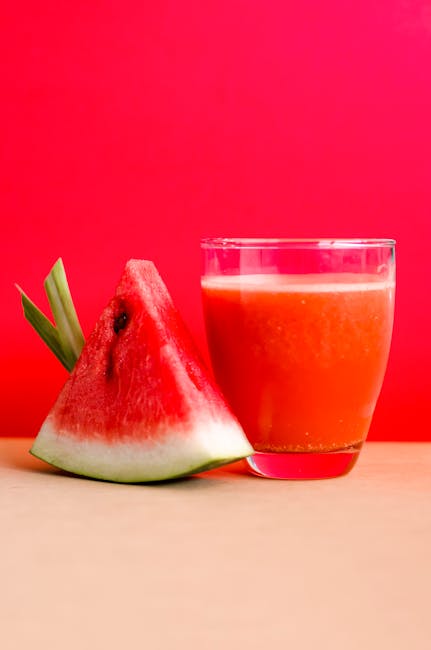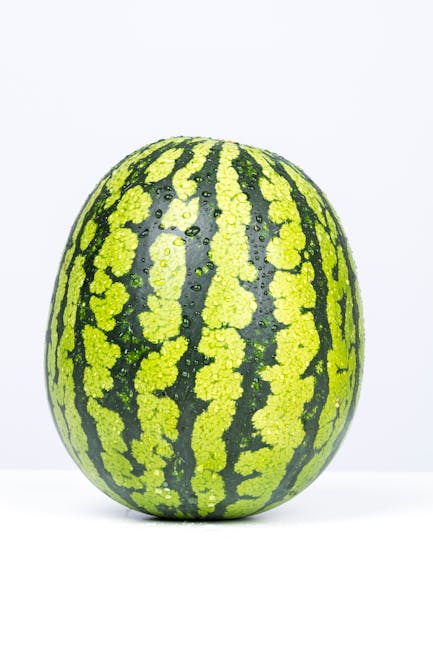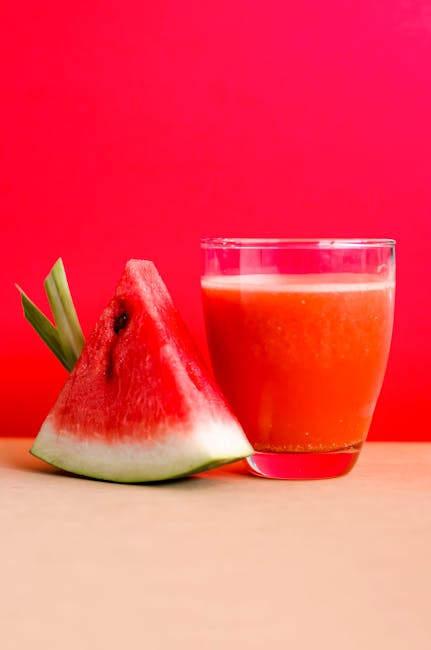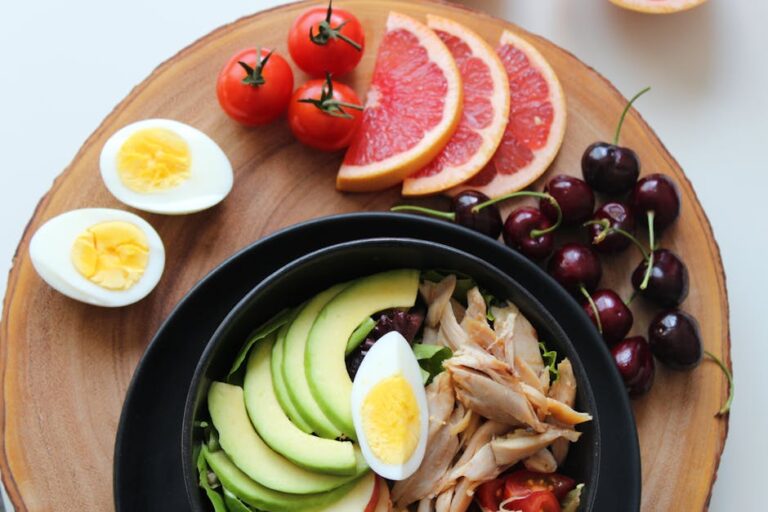The Watermelon Diet: A Comprehensive Guide to Weight Loss, Benefits, Risks, and Recipes
The Watermelon Diet: A Comprehensive Guide to Weight Loss, Benefits, Risks, and Recipes
The watermelon diet, a popular approach to weight loss, centers around incorporating watermelon into your daily routine. While it’s not a magic bullet, understanding its potential benefits, risks, and how to best implement it is key. This comprehensive guide will delve into everything you need to know about the watermelon diet, from its nutritional profile and weight-loss mechanisms to potential downsides and delicious recipe ideas.

Understanding the Nutritional Powerhouse: Watermelon
Watermelon, a juicy summer treat, is more than just a refreshing snack. It’s surprisingly low in calories and packed with essential nutrients. A typical serving (around 150g or 1 cup of cubed watermelon) contains approximately 46 calories, making it an excellent choice for those watching their calorie intake. But beyond its low calorie count, watermelon offers a wealth of benefits:
- High Water Content: Up to 92% of watermelon is water, contributing to hydration and feelings of fullness, which can aid in weight management.
- Rich in Vitamins and Minerals: Watermelon is a good source of Vitamin C, Vitamin A, potassium, and magnesium. These nutrients play vital roles in various bodily functions, including immune support and metabolism.
- Antioxidant Properties: Watermelon is rich in lycopene, a powerful antioxidant associated with reduced risk of chronic diseases like heart disease and certain cancers.
- Citrulline Content: This amino acid plays a role in blood vessel dilation, potentially benefiting cardiovascular health. Some research suggests it might even aid in athletic performance.
How the Watermelon Diet Works for Weight Loss
The watermelon diet’s effectiveness stems primarily from its low calorie density and high water content. By replacing higher-calorie foods with watermelon, you create a calorie deficit, a necessary condition for weight loss. The high water content promotes satiety, helping you feel fuller for longer, reducing overall calorie consumption. Additionally, the nutrients in watermelon support overall health, contributing to a more balanced approach to weight management.

However, it’s crucial to understand that relying solely on watermelon is not sustainable or advisable. A balanced diet containing a variety of fruits, vegetables, lean proteins, and whole grains is essential for long-term health and weight management. The watermelon diet should be viewed as a strategy to incorporate a highly nutritious and low-calorie food into your diet, not as a replacement for a complete and balanced eating plan.
Different Approaches to the Watermelon Diet
There are different approaches to integrating watermelon into a weight-loss plan. These range from incorporating it as a snack or meal replacement to more restrictive versions. It’s vital to choose a method that aligns with your individual health needs and preferences. Always consult with a healthcare professional or registered dietitian before starting any new diet.
1. Watermelon as a Snack or Meal Replacement:
This is the most common and generally safest approach. Replace high-calorie snacks (like chips or candy) or a portion of a meal with watermelon. This helps reduce overall calorie intake without drastically altering your eating habits.
2. Watermelon-Based Detox Diets:
These diets often involve a restrictive intake of other foods, relying heavily on watermelon for multiple meals. Such restrictive approaches can lead to nutrient deficiencies and are generally not recommended without professional guidance.
3. Watermelon as Part of a Balanced Diet:
This is the most sustainable and recommended approach. Incorporate watermelon into a balanced meal plan that includes a variety of nutrient-rich foods. This promotes overall health and provides the necessary nutrients for optimal well-being.
Potential Risks and Side Effects of the Watermelon Diet
While watermelon is generally safe, relying heavily on it can present potential risks:
- Nutrient Deficiencies: Restrictive watermelon diets can lead to deficiencies in essential vitamins and minerals found in other foods.
- Blood Sugar Fluctuations: While watermelon has a relatively low glycemic index, excessive consumption can still impact blood sugar levels, especially in individuals with diabetes or insulin resistance.
- Digestive Issues: Consuming large quantities of watermelon can cause diarrhea or other digestive upset in some people.
- Potassium Overload: Watermelon is rich in potassium. Individuals with kidney problems should be cautious about excessive potassium intake.
- Unsustainable Approach: Relying solely on watermelon for weight loss is not a sustainable long-term strategy. It’s crucial to maintain a balanced diet.
Delicious Watermelon Recipes for Weight Loss
Incorporating watermelon into your diet doesn’t mean sacrificing flavor. Here are some delicious and healthy recipe ideas:
1. Watermelon and Feta Salad:
Combine cubed watermelon, crumbled feta cheese, fresh mint leaves, and a light lemon vinaigrette. This refreshing salad is a perfect light lunch or side dish.
2. Watermelon Gazpacho:
Blend watermelon with cucumber, bell pepper, onion, and tomato for a cool and hydrating summer soup. A touch of lime juice adds extra zest.
3. Watermelon Smoothie:
Blend watermelon with other fruits like berries or banana for a nutritious and satisfying smoothie. Add a scoop of protein powder for an extra boost.
4. Watermelon and Avocado Salsa:
Combine diced watermelon, avocado, red onion, cilantro, and lime juice for a unique and flavorful salsa. Serve with baked tortilla chips for a light and refreshing snack.
Conclusion: A Balanced Approach to the Watermelon Diet
The watermelon diet, when approached responsibly and as part of a balanced lifestyle, can be a helpful tool for weight management. Its high water content, low calorie density, and nutritional benefits make it a valuable addition to a healthy diet. However, it’s crucial to avoid restrictive versions and instead focus on incorporating watermelon into a well-rounded meal plan that includes a variety of fruits, vegetables, lean proteins, and whole grains. Always consult with your doctor or a registered dietitian before making significant dietary changes.

Remember, sustainable weight loss is a journey, not a sprint. Focus on creating healthy habits, incorporating nutritious foods like watermelon, and prioritizing overall well-being. A balanced approach is key to achieving and maintaining a healthy weight.




